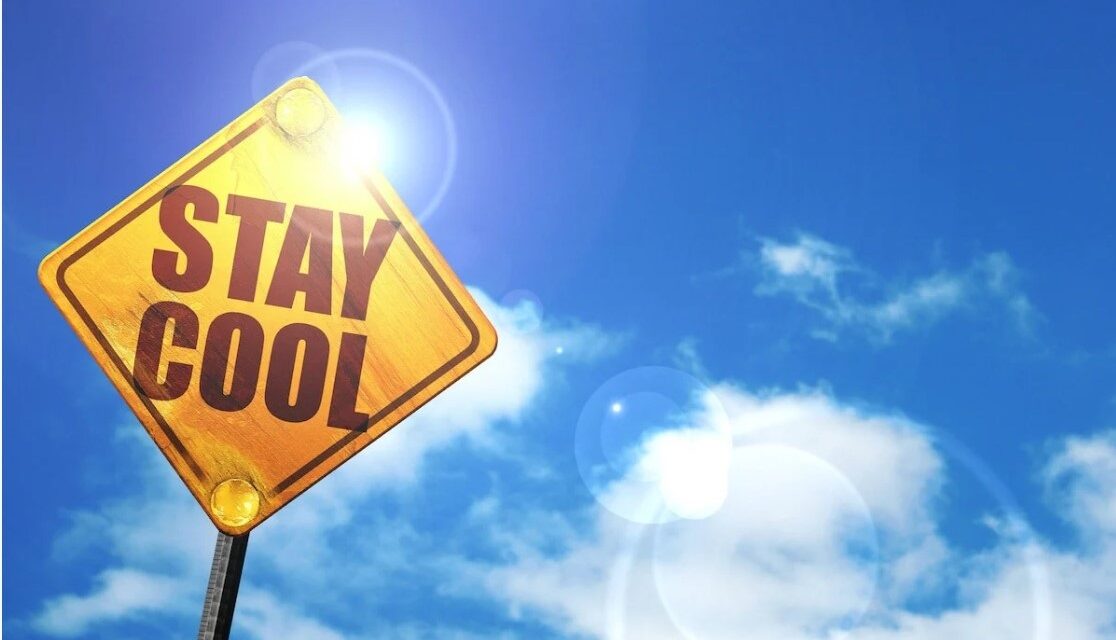THE BRIGHT SIDE
Whether you’re without power, enduring extreme heat with no air conditioning, or just trying to save money, there are ways to feel comfortable.
The body shouldn’t be too hot for too long, as too much heat can harm your brain and other organs, according to the US National Institutes of Health. Sweating is the body’s natural cooling system, but when that’s not enough, there’s an increased risk of developing the heat-related illness hyperthermia, signs of which include heat cramps, heat edema, and heat stroke. Heat combined with high humidity elevates this risk since the air’s saturation level makes sweat accumulate on the skin, preventing the body from cooling naturally.
Hydrating yourself is the first and most important part of cooling down. Placing cold rags or ice packs on your wrists or neck will help cool you down quickly because these pulse points are areas where blood vessels are close to the skin, so you’ll cool down more quickly. Taking a cold shower or bath helps cool your body by lowering your core temperature. Place box fans facing out of the windows of rooms you’re spending time in to blow out hot air and replace it with cold air inside. If you have windows that face the sun’s direction in the morning through afternoon, close the curtains or blinds over them to keep the sun from coming directly into the house and heating the inside.
If no one’s using a room that doesn’t have vents or registers, close the door to that area to keep the cool air confined to only occupied areas of the house. Oven heat can spread throughout your house. Keep the heat centralized in one area, such as a slow cooker. Or cook outdoors on a grill to keep the heat outside.
The number-one issue is to stay well-hydrated and remember to check on your neighbors and elderly.







